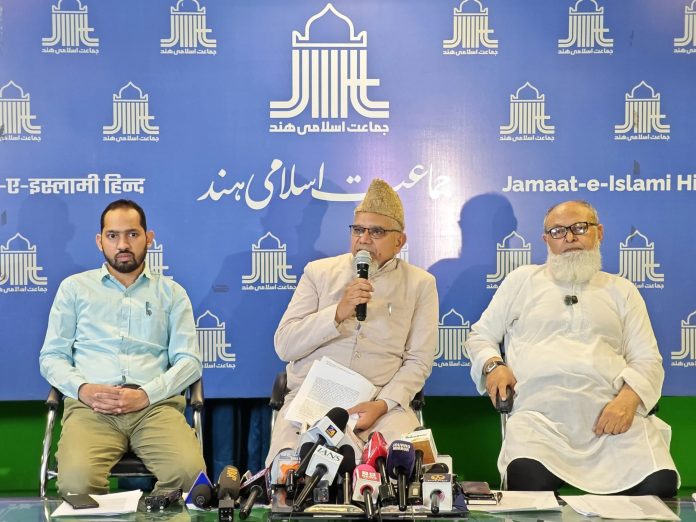New Delhi: The Vice President of Jamaat-e-Islami Hind (JIH), Professor Salim Engineer, has voiced deep sorrow and grave concern over a string of recent tragedies that have occurred across the country. These include a deadly factory explosion in Telangana, a stampede during the Rath Yatra in Puri, and an air crash in Ahmedabad. He addressed these incidents during JIH’s monthly press conference, calling for urgent reforms in public safety policies and a more accountable governance framework.
Professor Salim Engineer stated that the incidents in Ahmedabad, Puri, and Telangana, which occurred within a span of weeks, point to a dangerous pattern of systemic neglect. He acknowledged the efforts made by both state and central governments, including compensation to victims and the launch of inquiries, but emphasized that these measures fail to tackle the root causes. On June 30, 2025, a major explosion at Sigachi Industries’ pharmaceutical plant in Telangana led to the death of 40 workers and critically injured several others. Initial reports suggest the explosion may have been caused by outdated machinery, weak structural integrity, and blatant safety violations.
Just a day before the explosion, three devotees died and over 50 were injured in a stampede near the Gundicha Temple in Puri during the annual Rath Yatra. This tragedy, according to JIH, reveals serious shortcomings in crowd management and safety preparedness at large public and religious gatherings. The air crash in Ahmedabad further highlighted flaws in civil aviation oversight and emergency response systems.
The JIH Vice President also expressed alarm at the broader context of such incidents. Over the past six months, India has seen multiple industrial fires, collapses of civic infrastructure, and violent stampedes. These have contributed to rising public anxiety about safety in workplaces, places of worship, and routine urban environments. In light of these challenges, Professor Salim Engineer proposed a set of comprehensive recommendations to ensure public safety.
Among the proposals are a national-level review of all safety laws and emergency protocols, creation of a uniform and enforceable safety code applicable to all sectors, modernization of crowd management and aviation systems, implementation of real-time oversight and early warning mechanisms, community involvement in safety planning, and the establishment of independent, empowered regulatory bodies free from administrative interference. He also stressed that political leaders and officials must be held morally and administratively responsible for such preventable disasters.
Turning to international affairs, Professor Salim Engineer condemned what he described as Israel’s continued genocide in Gaza and its recent acts of aggression against Iran. He said that Israel’s bombing of civilians waiting in food queues and its broader apartheid policies have crossed every line of humanity and morality. The recent US-Israel attacks on Iranian territory, he added, represent a serious violation of international law and sovereignty.
He urged the international community to abandon political double standards and to recognize and respond to these atrocities with firm and lawful action. He called for justice for the oppressed and accountability for the perpetrators of war crimes.
On the renewed violence in Manipur, Maulana Shafi Madani, the National Secretary of Jamaat-e-Islami Hind, expressed anguish over the deteriorating situation in the state. He highlighted the rise in retaliatory violence in Imphal, marked by arson, looting, and clashes with security forces. He pointed to the growing influence of radical armed groups, which he claimed are being sheltered by political patrons.
Maulana Madani said thousands of families remain displaced, with their lives in turmoil. Children’s education, job opportunities, and access to basic services continue to be severely affected. He reiterated JIH’s demands for the disarmament of all illegal militias, dismantling of hate networks, and rehabilitation of affected people. He criticized the silence of top government leaders and urged the Prime Minister and the Home Minister to take swift and decisive steps to end the crisis.




